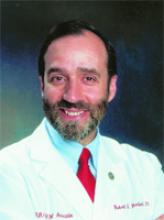A new approach to specialty certification was adopted in 2006 by the 24 member organizations that constitute the American Board of Medical Specialties (ABMS). At its core, this new “maintenance of certification,” or MOC, program requires physicians to demonstrate a commitment to lifelong learning and ongoing practice assessment.
In January 2008, the American Board of Obstetrics and Gynecology (ABOG) initiated the MOC for ObGyns. It will affect all diplomates who have a certificate that was issued in 1986 or afterward. Here are the four core elements of MOC and the process that you and I will use to satisfy its requirements:
Assessment of professional standing means holding a valid, unrestricted medical license in at least one state or jurisdiction. Annually, ABOG will verify your standing with the state licensing board(s).
Demonstration of lifelong learning and self-assessment is based on your completion of continuing education programs. This section of the MOC has been, and will continue to be, completed through ABOG’s Annual Board Certification (ABC) program.
Demonstration of cognitive expertise requires that you pass a proctored, secure, “closed-book” examination. Did you think that taking high-stakes, standardized, multiple-choice tests was behind you? Sorry—in 2012, you’ll have the opportunity to relive the excitement and anxiety (and cost) of such a test! The exam must be passed once during each 6-year MOC cycle; the first exam will be given 5 years into the 6-year MOC cycle. Because the exam will be secure, you’ll have to travel to one of the testing centers provided around the United States to take it.
Practice performance assessment is demonstrated by self-assessment of the quality of care you provide to patients, measured against national guidelines and benchmarks. For ObGyns, this means completing a chart review every 6 years for as many as 10 patients in your practice, focused on 10 self-selected medical topics. The clinical practice assessment will include modules in obstetrics, gynecology, office practice, ethics, patient safety and communication, and subspecialty options. Detailed discussion of this core element of the MOC can be found at www.abog.org/pdf/MOC2008.pdf.1
MOC is clearly a big change for us
Maintenance of certification can be viewed from a number of perspectives, like any major change can be.
The scientific perspective
The ABMS believes that MOC is the path to better care. To my knowledge, however, there’s no reproducible scientific evidence, based on controlled study, that MOC improves care. Common sense suggests that lifelong learning would improve the care we provide—but that’s all there is to support the idea. This seems to run counter to standards of medical science: We don’t accept the efficacy of the pharmaceuticals we prescribe on the basis of common sense; we demand demonstration, in controlled trials, that they are superior to placebo.
From a scientific perspective, it seems prudent to first test such a major change as MOC in a controlled trial before applying it to all physicians. And why not comparatively test alternatives to MOC? One would be asking each physician to develop his, or her, own learning plan and to involve mentors and partners in the process.
On its Web site, the ABMS says that “Physicians benefit from participating in MOC because they receive focused learning based on individual practice needs, increase efficiency and reduce malpractice premiums as well as the need for duplicate assessments of credentials, among other benefits.”2 The optimism of the ABMS may have led it to over-state available scientific evidence here; to my knowledge, there’s no evidence that MOC will reduce premiums for professional liability insurance.
Also, it’s my experience that duplicate assessment of credentials is increasing as more and more agencies attempt to regulate physicians’ practice.
The professional perspective
One of the foundations of professionalism is to take personal responsibility for lifelong learning and continuous improvement of the care one provides. MOC is a paternalistic approach to ensuring lifelong learning that may undermine some facets of professionalism. For example, in response to ABOG’s ABC program, entrepreneurs have established Web sites at which physicians can, for a fee, obtain access to answers to the ABC multiple-choice exam.
The community perspective
Patients trust their physician to provide outstanding health care—trust that is well founded. The education and training pathway to specialty certification is long and arduous, and produces outstanding clinicians. Recently, however, we’ve seen a gradual but clear decline in the trust that the average patient places in her physician. So I think that patients are likely to applaud the intent of MOC, which is to ensure the quality of the physician community.


